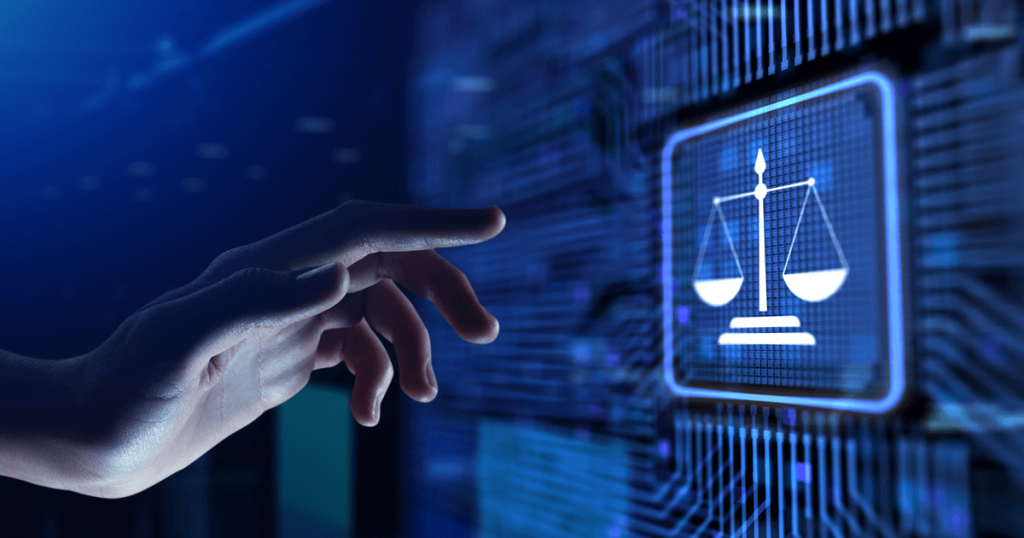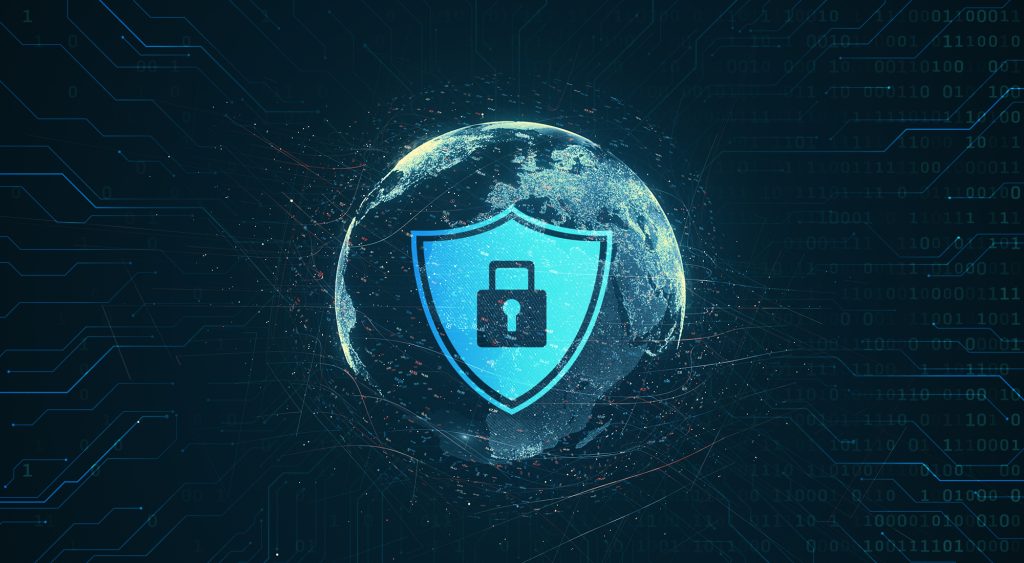In the modern digital landscape, cybersecurity isn’t just about protecting systems from attacks; it’s also deeply intertwined with legal and regulatory frameworks. The rise of cybercrime, data breaches, and digital fraud has led to an increasing need for cyber law, which governs issues related to internet usage, data protection, intellectual property, and more. For cybersecurity professionals, understanding cyber law can open doors to new career opportunities that blend technology with legal expertise. This blog explores how cyber law impacts cybersecurity careers, the skills required, and the types of roles available for those interested in navigating this evolving field.

What is Cyber Law, and Why Does It Matter?
Cyber law, also known as Internet law or IT law, covers all legal aspects concerning the use of the internet and digital technologies. It encompasses regulations on data protection, privacy, intellectual property rights, e-commerce, and cybercrimes such as hacking, identity theft, and phishing. Cyber law has become critical as digital threats increase and governments and organizations work to establish regulatory frameworks to protect users and data.
For cybersecurity professionals, understanding cyber law is essential for several reasons:
- Compliance and Regulations: Cybersecurity experts must ensure that their organization’s practices comply with laws like the GDPR, HIPAA, and CCPA. Non-compliance can lead to fines, legal action, and damage to the organization’s reputation.
- Incident Response and Legal Evidence: When a cyberattack occurs, cybersecurity teams must work closely with legal departments to collect evidence and follow legal protocols. Familiarity with cyber law ensures that evidence is handled properly, which is crucial for prosecution.
- Mitigating Risk: By understanding legal requirements, cybersecurity professionals can design systems that reduce legal risks, protecting both the organization and its users.
The Role of Cyber Law in Cybersecurity Careers
With the increasing overlap between technology and law, new roles are emerging that require knowledge of both fields. Cyber law specialists are in high demand, particularly in areas involving compliance, risk assessment, and digital forensics. Some organizations have even created specific roles such as Cyber Law Advisor or Compliance Specialist to bridge the gap between IT and legal teams.
The need for cyber law knowledge in cybersecurity roles is particularly strong in industries such as finance, healthcare, and e-commerce, where strict regulations govern data handling and privacy. Cybersecurity professionals with legal expertise can advise organizations on navigating these laws and minimizing risks.
Key Cyber Law Domains for Aspiring Cybersecurity Professionals
1. Data Protection and Privacy Laws
Data protection is one of the most critical aspects of cyber law. Laws like the General Data Protection Regulation (GDPR) in the European Union and the California Consumer Privacy Act (CCPA) in the United States establish stringent rules for collecting, storing, and handling personal data. Cybersecurity professionals need to understand these laws to ensure data is protected and organizations remain compliant.
Knowledge of data protection laws can lead to career opportunities in roles such as:
- Data Privacy Officer (DPO): Responsible for ensuring compliance with data protection regulations, often required by law in organizations that handle significant amounts of personal data.
- Compliance Analyst: Assesses and enforces policies related to data protection and helps mitigate risks related to non-compliance.
2. Intellectual Property (IP) Protection
In the digital age, protecting intellectual property (IP) is a major concern for companies, especially those involved in software, content creation, and innovation. Cyber law provides legal frameworks to safeguard IP against unauthorized use or theft, which is a growing concern as cyber threats continue to evolve.
Roles for cybersecurity professionals in IP protection include:
- Intellectual Property Security Specialist: Works to prevent theft of proprietary information and secure IP from digital threats.
- Digital Rights Manager: Monitors and enforces digital rights management (DRM) policies to ensure that intellectual property is used legally.
3. Cybercrime Legislation
Cybercrime encompasses a wide range of offenses, including hacking, phishing, fraud, and identity theft. Governments worldwide are introducing laws to combat these crimes, making it crucial for cybersecurity professionals to understand how to identify, investigate, and respond to cyber offenses in compliance with legal standards.
Cyber law expertise is particularly valuable in roles such as:
- Cybercrime Investigator: Works with law enforcement to investigate and respond to cybercrimes, often collecting and preserving evidence for prosecution.
- Forensics Analyst: Gathers and analyzes digital evidence after a security incident, ensuring that it complies with legal standards for admissibility in court.
4. E-commerce and Digital Transactions
As more businesses go online, legal frameworks have been developed to protect consumers and merchants in the digital economy. Cyber law regulates online contracts, digital signatures, and e-commerce fraud, which cybersecurity professionals must understand to protect both the business and its customers.
Roles in this area include:
- E-commerce Security Specialist: Focuses on securing online transactions and preventing fraud.
- Regulatory Compliance Officer: Ensures that e-commerce operations comply with relevant laws and industry standards, such as PCI-DSS for payment data security.

Essential Skills for Cybersecurity Professionals in Cyber Law
To thrive in cybersecurity roles that intersect with cyber law, professionals need to combine technical cybersecurity skills with knowledge of legal concepts and regulations. Here are key skills to develop:
1. Legal Knowledge and Compliance
Familiarity with data protection laws, cybercrime legislation, and intellectual property rights is crucial. Cybersecurity professionals should stay updated on changing regulations and understand how to apply these laws to technology practices.
2. Risk Management
Understanding how to identify, assess, and mitigate legal risks is essential. Cybersecurity experts with a risk management background can develop strategies to protect their organizations from both legal and security threats.
3. Incident Response and Digital Forensics
In the event of a cyberattack, incident response and forensics are critical. Cybersecurity professionals with forensics expertise can handle digital evidence in a way that is admissible in court, working closely with legal teams to support investigations.
4. Communication and Collaboration
Cyber law-related roles often require collaboration with other departments, including legal and compliance teams. Strong communication skills are essential for translating technical issues into legal implications and ensuring that all teams work together to achieve compliance and security.
Educational Paths and Certifications in Cyber Law
For cybersecurity professionals interested in cyber law, there are several educational paths and certifications to consider:
1. Cyber Law and Policy Courses
Many universities offer courses on cyber law and policy, which cover topics like data privacy, digital rights, and cybercrime. These courses provide a foundational understanding of legal frameworks and regulations.
2. Certifications in Cyber Law and Compliance
Certifications can help professionals stand out in the job market. Some relevant certifications include:
- Certified Information Privacy Professional (CIPP): Covers global privacy laws and regulations.
- Certified Information Security Manager (CISM): Focuses on risk management and compliance.
- Certified Cyber Forensics Professional (CCFP): Provides expertise in digital forensics and legal considerations for cyber investigations.
3. Law and Technology Graduate Programs
Some universities offer specialized graduate programs that combine law and technology, preparing students for roles at the intersection of cybersecurity and legal practice. These programs can lead to roles in regulatory compliance, data privacy, and cyber forensics.
Career Opportunities in Cyber Law and Cybersecurity
The demand for professionals skilled in both cybersecurity and cyber law is growing, particularly in industries with strict regulatory requirements. Here are some promising career paths:
- Cyber Law Consultant Cyber law consultants advise companies on compliance with data protection regulations, IP protection, and cybercrime laws. They help organizations minimize legal risks by creating policies and guidelines for secure and compliant data handling.
- Data Privacy Officer With data privacy becoming a central focus for companies, the role of a Data Privacy Officer (DPO) is increasingly important. DPOs ensure that organizations comply with data protection regulations and educate employees about privacy policies.
- Cybersecurity Policy Analyst Policy analysts work to shape cybersecurity policies at the organizational, national, or even international levels. They assess how existing laws apply to new technologies and advise governments or companies on regulatory compliance.
- Cyber Forensics Investigator Forensics investigators examine digital evidence following security incidents, often working closely with law enforcement. They ensure that evidence is collected and preserved in compliance with legal standards, contributing to criminal investigations.
- Compliance and Regulatory Analyst Compliance analysts monitor and enforce adherence to regulations in industries like finance and healthcare. They play a key role in protecting sensitive data and ensuring that companies follow industry standards for cybersecurity.

The Future of Cyber Law and Cybersecurity Careers
As technology continues to evolve, cyber law will play an increasingly important role in shaping the cybersecurity field. From autonomous vehicles to artificial intelligence, emerging technologies will introduce new legal challenges. Cybersecurity professionals who understand the nuances of cyber law will be well-positioned to navigate these challenges and guide their organizations through the complexities of tech regulations.
Governments and organizations worldwide are expected to introduce stricter cyber laws in the coming years, aiming to protect users’ data and enhance cybersecurity standards. This shift will lead to an even higher demand for professionals who can combine technical skills with legal knowledge.
Conclusion: Unlocking Opportunities with Cyber Law
For cybersecurity professionals, knowledge of cyber law offers a powerful advantage in a competitive job market. By understanding the legal landscape, you can pursue specialized roles that offer diverse responsibilities, from compliance and risk management to forensics and policy development.
If you’re passionate about both technology and law, pursuing a career at the intersection of cybersecurity and cyber law can be both rewarding and impactful. By gaining expertise in regulations, data protection, and digital forensics, you’ll be equipped to protect organizations, safeguard user privacy, and contribute to a secure and legally compliant digital world.







